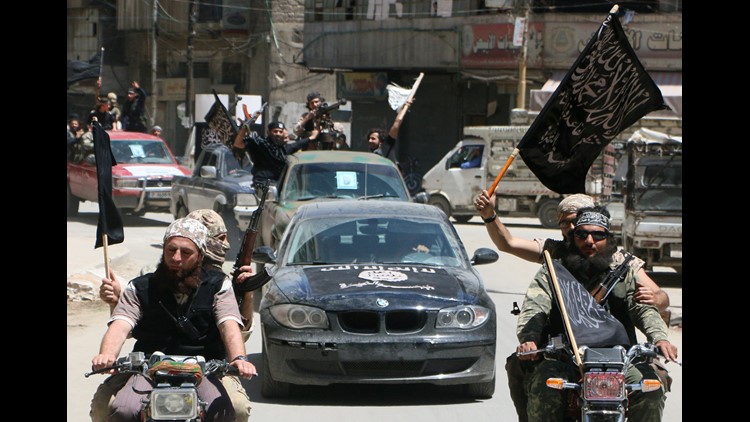LONDON — The head of Britain’s MI6 intelligence agency has warned of a resurgence of al Qaeda in Syria’s ungoverned areas.
In a rare on-the-record meeting with journalists on the sidelines of the Munich Security Conference, Alex Younger, known as “C” or Chief in Britain’s foreign intelligence service, also warned that even as ISIS nears territorial defeat in Syria, the terror group has “managed to morph and reconstitute … in a more traditional, asymmetric threat.”
Younger separately said the Idlib region of northern Syria, where al Qaeda affiliates have many Europeans in their ranks, “is increasingly radicalized and so there certainly exist people who we are very concerned about.” He declined to say how many British citizens were there.
“We need to think about what happens when people in Idlib disperse and it’s a pretty similar conversation” to how returnees from ISIS’s so-called former caliphate are treated, he said. “These organizations exploit political failure essentially. They exploit ungoverned space to organize and grow.”
Younger expressed concern that ISIS and al Qaeda could exploit “new technologies and [we must] make sure we are kind of ahead of them on all of them.” He added MI6 needed to be “able to penetrate those terrorist organizations — notwithstanding the fact that they are in some of the most forbidding places in the world — and we do.”
The MI6 chief also sounded a stark warning over the extent of Russia’s threat to Western political institutions, while admitting he was perplexed by its motives.
“We need to ask ourselves why Russia is behaving in this way,” said Younger. “And in truth, I do not know.”
He said his assessment was that “Russia curiously feels threatened by the quality of Western institutions and Western alliances. And there’s something in the circumstances of the dissolution of the Soviet Union that drives them to that conclusion — which I believe is entirely erroneous, by the way. But … they in consequence do what they can to degrade them. They should be under no illusion that, for whatever reasons they are doing this, it needs to stop.”
Asked about recent claims by Bellingcat identifying a third Russian linked to the 2018 Salisbury poisonings, Younger did not comment directly on the report’s allegations. But he said: “I have the highest respect for Bellingcat’s capabilities. I think that Russia has been widely involved across Europe in particular over a number of years… You can see that there is a concerted program of activity and yes, it does often involve the same people.”
He added that the targets of the Salisbury poisonings, former Russian double agent Sergei Skripal and his daughter Yulia, were still at risk. “I think we assess that there is a standing threat from the GRU and the other Russian intelligence services, and that very little is off limits.”
Russia has repeatedly denied any involvement in the Salisbury attack, and the Kremlin dismissed the latest reports on Friday. “We’ll comment on this in the same way as we did with the first person, second person, all of those accused of these things,” Kremlin spokesman Dmitry Peskov said. “Nothing changes here. And our approach to this remains the same.”
Younger later released a joint statement with his French and German counterparts, Bernard Emié of the General Directorate for External Security and Bruno Kahl of the Federal Intelligence Service, expressing their solidarity against terrorism, but also the emerging cyber-threat. Younger said in the statement that, regardless of Brexit, “Britain’s commitment to the security of the European continent is unconditional.”



